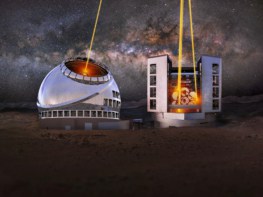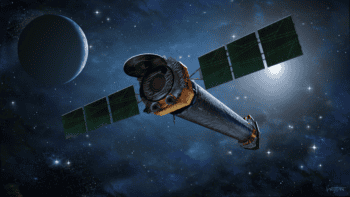
A defunct telescope at the High Energy Stereoscopic System (HESS) site in Namibia is to be refurbished and brought back online to discover and monitor variable and transient sources in the sky. The telescope once belonged to the Robotic Optical Transient Search Experiment (ROTSE) – a network of four now-decommissioned robotic telescopes around the world. The decision to refurbish the telescope was approved in October by the African Astronomical Society (AfAS) science committee.
The ROTSE project was originally funded by NASA but when the funding ran out for operational costs, the telescopes were deactivated. They were designed to continuously observe the celestial sphere and to respond to alerts from spacecraft of transient events, particularly gamma-ray bursts, novae and supernovae.
As well as Namibia, the other locations include the Siding Springs Observatory near Coonabarabran, Australia, the Tübitak National Observatory in Antalya, Turkey, and the McDonald Observatory in Texas.
David Buckley, chair of the AfAS science committee says that the refurbishment will be paid for by the AfAS science committee, adding that the South African Astronomical Observatory will provide an initial CCD camera and may also assist with technical assistance. “The major costs of operating the facility are electrical power and Internet connectivity, both of which will be supplied by the HESS consortium,” he adds.
Once brought back online in the coming months, the refurbished telescope will conduct sky surveys and follow-up observations to allow AfAS astronomers to discover or monitor variable and transient sources.
“This includes the discovery and study of remote solar system bodies, such as trans-Neptunian objects, as well as search for extrasolar planet transits,” says Buckley, who adds that the telescope also provides African participation in global collaborations focusing on the “new and vibrant field” of multimessenger astronomy. South Africa opens new ‘eye’ on southern skies
Carl Akerlof, an astronomer at the University of Michigan in Ann Arbor, Michigan, who initiated and led ROTSE, told Physics World that he is “delighted” by the AfAs’s decision to bring the telescope back online.
“The main question will be selecting someone with the skills to keep it operable,” says Akerlof, who believes there are opportunities for such a small telescope to capture transient images such as gamma-ray bursts for which it was designed. He also thinks the telescope could be made available to university students by taking advantage of the telescope’s remote computer control system.



